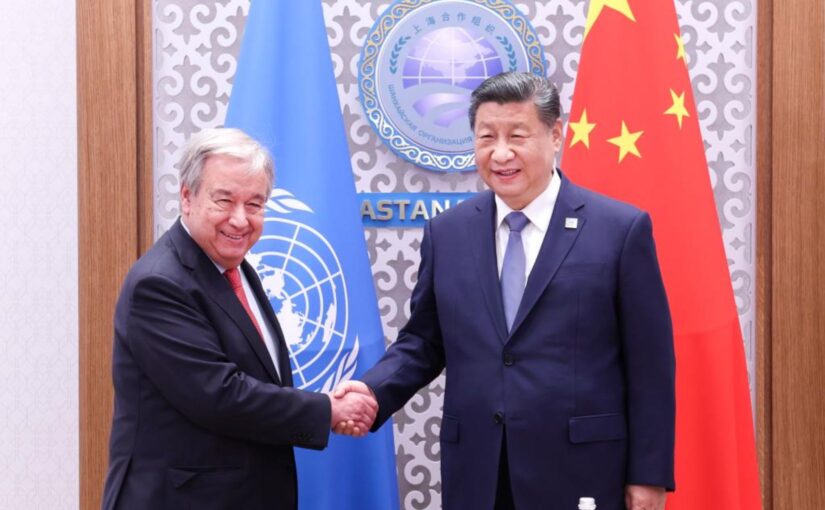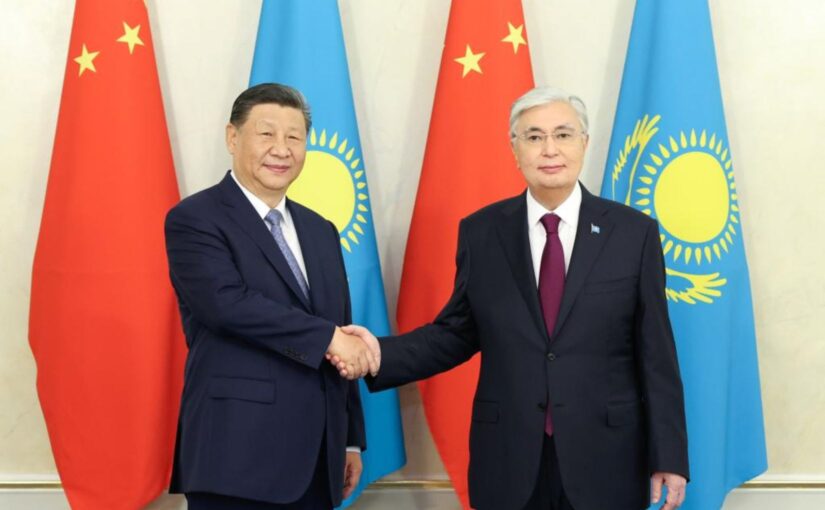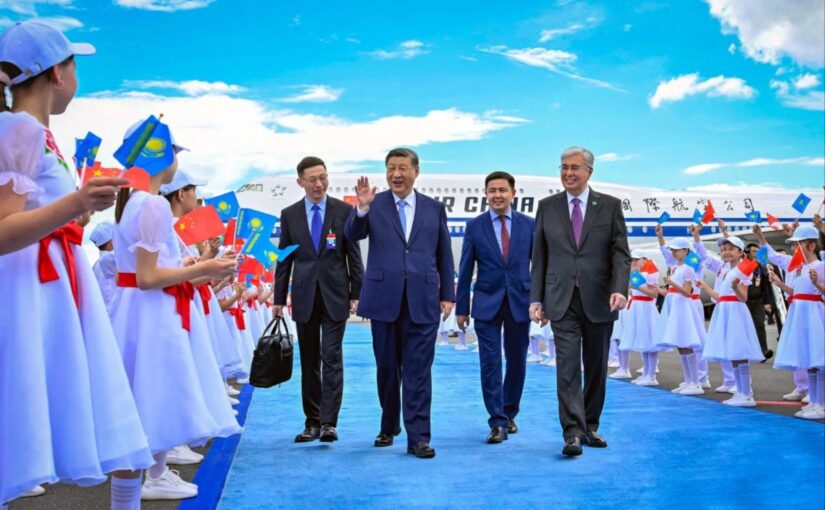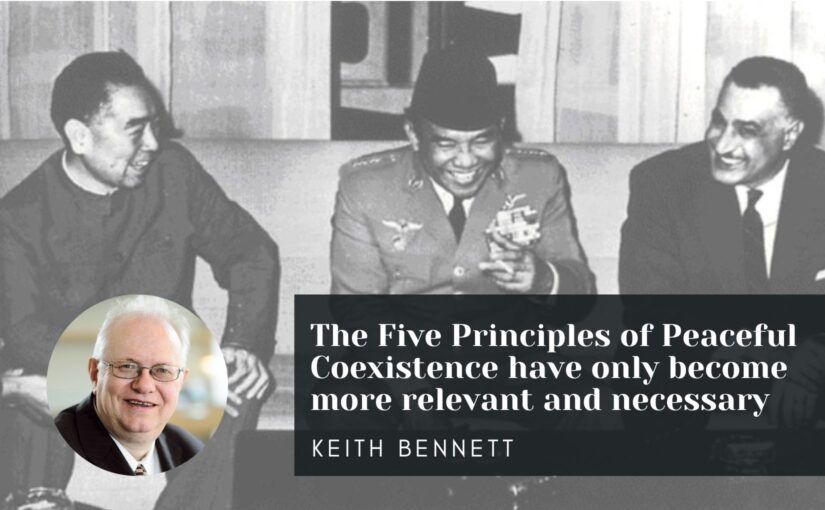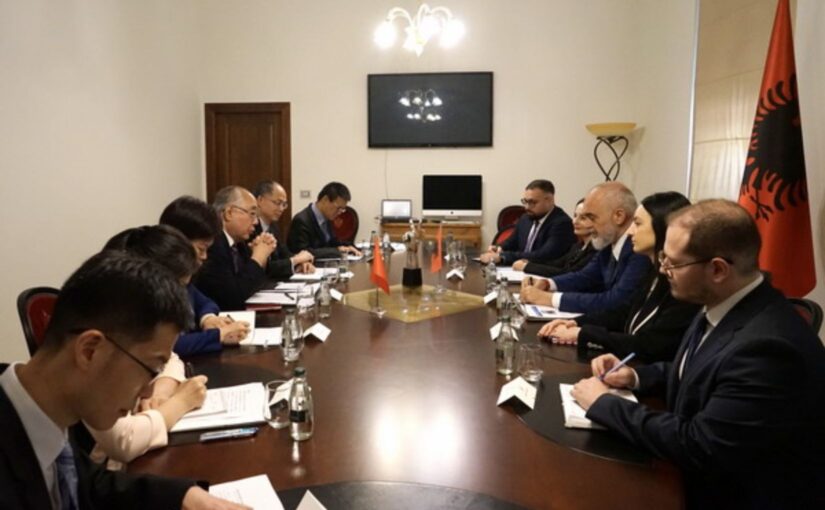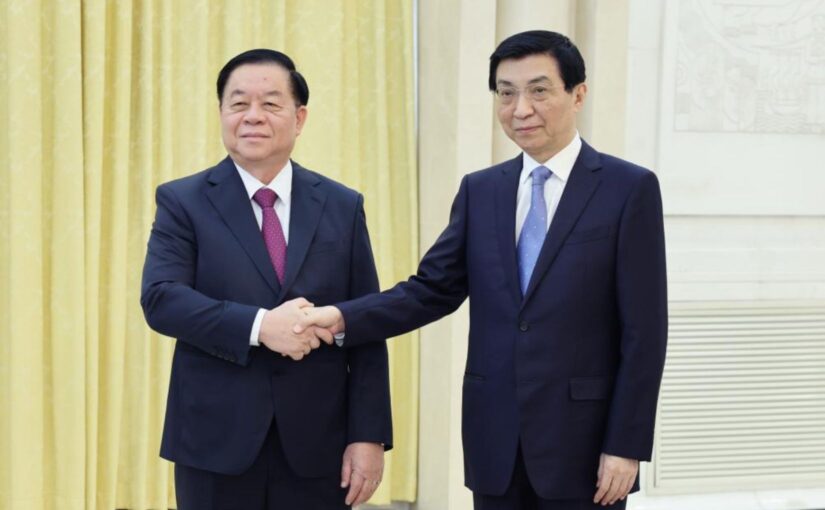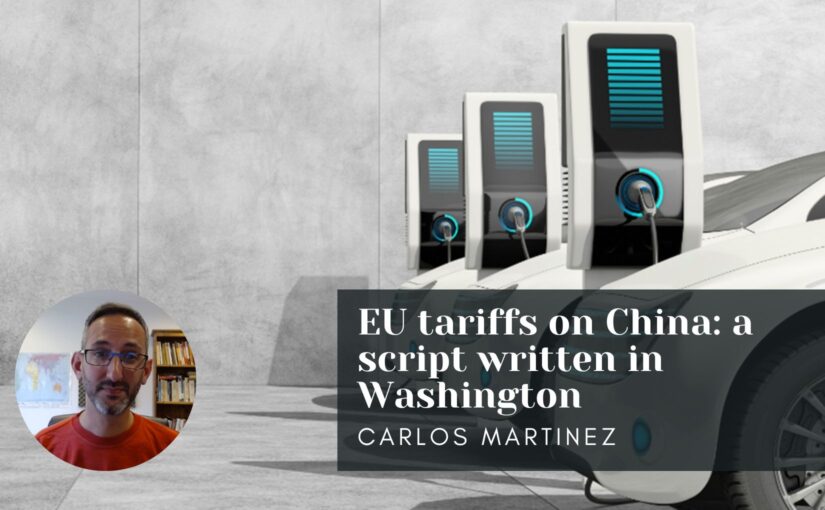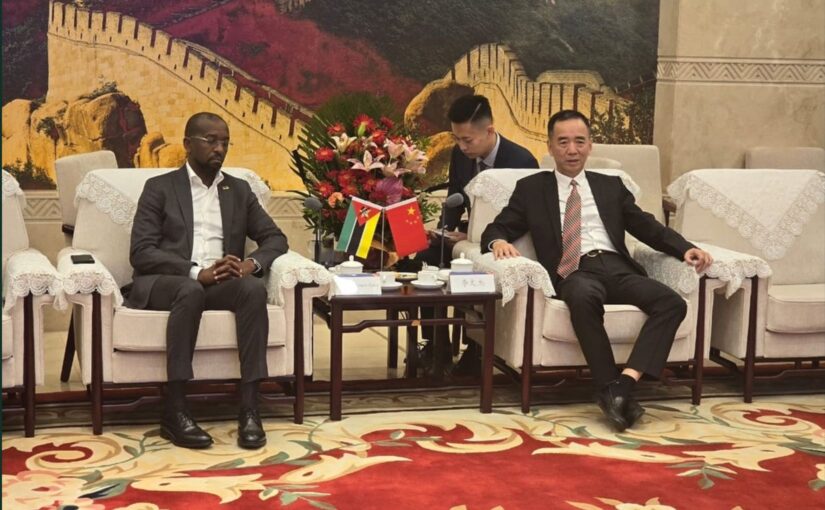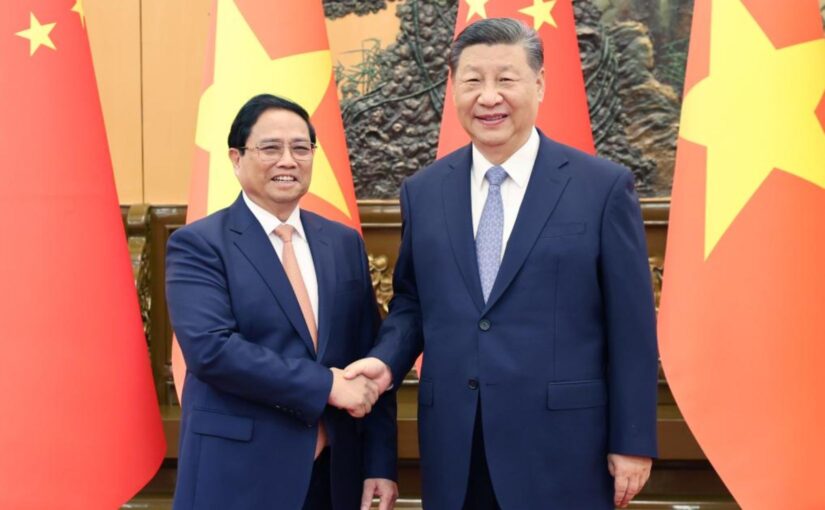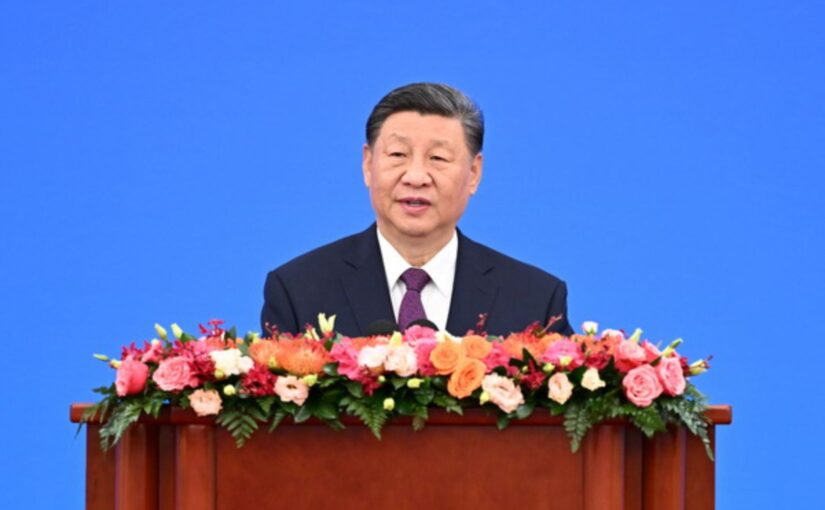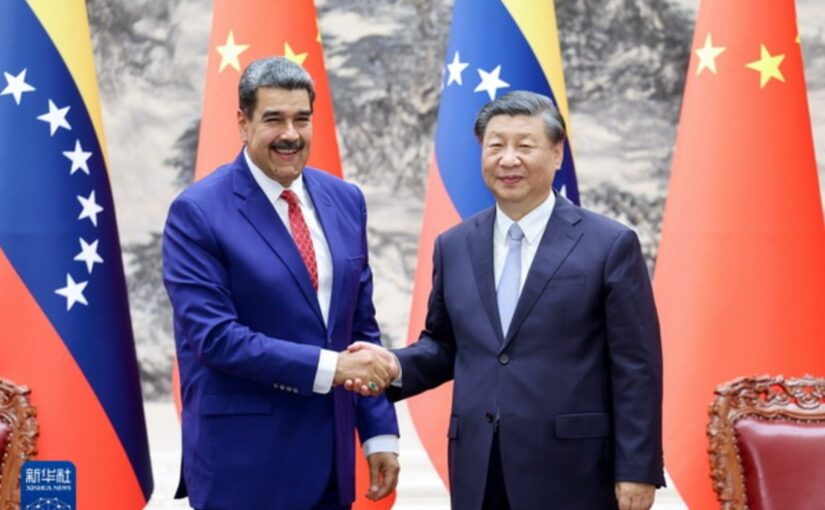Chinese President Xi Jinping held bilateral meetings with a number of his counterparts during their visits to Kazakhstan for the summit meeting of the Shanghai Cooperation Organisation (SCO).
On July 3, he met with the Presidents of Kyrgyzstan, Azerbaijan, Uzbekistan and Russia.
Meeting Kyrgyz President Sadyr Japarov, Xi said that the two leaders held fruitful talks in Xi’an last May and reached a high degree of consensus on China-Kyrgyzstan relations and bilateral cooperation in various fields. Good neighbours wish each other well, Xi said, adding that China is happy to see a stable and developing Kyrgyzstan and will, as always, firmly support Kyrgyzstan in safeguarding national independence, sovereignty and territorial integrity and in finding a development path suited to its national conditions.
China is willing to import more high-quality green agricultural products from Kyrgyzstan, support Chinese enterprises in investing and doing business in the Central Asian country, strengthen cooperation in areas such as new energy vehicles and cross-border e-commerce, and accelerate the construction of the China-Kyrgyzstan-Uzbekistan railway project.
Japarov said he still vividly remembers his visit to China in May last year, which opened up a new era in bilateral relations. At present, the political relations between Kyrgyzstan and China are developing at a high level, various departments of the two countries maintain close communication, sub-national exchanges and cooperation are booming, and bilateral trade and investment are growing steadily.
He said that in the face of global changes unseen in a century, Kyrgyzstan-China relations have always been rock-solid, and there are no political differences or cooperation obstacles between the two countries.
Meeting with Ilham Aliyev, President of Azerbaijan, Xi said that China and Azerbaijan have upgraded bilateral relations to strategic partnership, which is a new positioning and a new starting point. China and Azerbaijan are good friends with sincerity and mutual trust, as well as good partners with equality and mutual benefit, and bilateral relations have been developing healthily and steadily, with fruitful cooperation and richer strategic connotations. The two sides should promote high-quality Belt and Road cooperation, deepen cooperation in such fields as trade, investment, oil and gas, and photovoltaics, strengthen connectivity, advance the construction of the Trans-Caspian International Transport Route, and ensure the healthy and stable operation of China-Europe freight trains. China supports Azerbaijan in hosting the 29th session of the Conference of the Parties to the United Nations Framework Convention on Climate Change.
President Aliyev said that Azerbaijan firmly abides by the one-China principle and firmly supports China’s great cause of national reunification, which is the trend of history, and no force can stop it. Azerbaijan is willing to strengthen solidarity and cooperation with China, tap the potential, enhance cooperation in such areas as economy, trade, investment, new energy and culture within the framework of Belt and Road cooperation, closely collaborate within the SCO and other frameworks, oppose external interference and safeguard regional security and stability.
Meeting with Uzbek President Shavkat Mirziyoyev, Xi said that during his counterpart’s successful state visit to China in January, China and Uzbekistan agreed to elevate their ties to an all-weather comprehensive strategic partnership for a new era and promote the construction of a China-Uzbekistan community with a shared future from a higher starting point.
Noting that China firmly supports Uzbekistan in safeguarding its national independence, sovereignty and security, Xi said China is always a trustworthy friend and partner of Uzbekistan.
He urged the two sides to further advance the Belt and Road cooperation, well implement the medium- and long-term cooperation plan on economy, trade and investment, speed up the construction of the China-Kyrgyzstan-Uzbekistan railway, as well as cooperation in fields of photovoltaic, wind power and new energy vehicles, and continue to strengthen cooperation in poverty reduction and social governance.
China supports the expansion of exchanges between the two countries at the sub-national level, as well as exchanges in tourism, education and other fields, he said, noting China welcomes Uzbekistan’s participation in the seventh China International Import Expo as the guest country of honour.
This meeting was followed up by a July 6-9 visit to Uzbekistan by Zhao Leji, Chairman of the Standing Committee of China’s National People’s Congress (NPC).
Meeting with President Mirziyoyev, Zhao noted that the Uzbek leader had met with President Xi in Astana just a few days ago and reached a broad consensus, charting the course for the high-level development of China-Uzbekistan relations.
Mirziyoyev asked Zhao to convey his best wishes to President Xi and extended congratulations on the 75th anniversary of the founding of the People’s Republic of China. Uzbekistan fully supports the Global Development Initiative, the Global Security Initiative, and the Global Civilisation Initiative, firmly abides by the one-China principle, and is willing to deepen bilateral cooperation in such fields as economy, trade, local governments, education and energy resources.
Continue reading Important bilateral meetings on sidelines of SCO summit promote multipolarity and regional cooperation